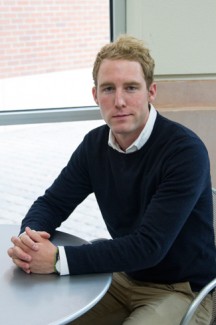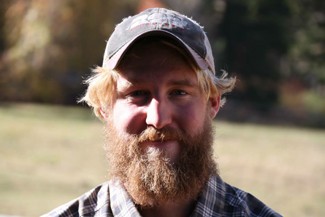Semester in the Wild students become acclimated to daily life back in Moscow
Technology is so intertwined with daily life that many people don’t have the opportunity to completely unplug, said Scott Slovic, a University of Idaho English professor.
Escaping the chaos and fast pace of a digitalized world is one of the many benefits to the College of Natural Resources’ Semester in the Wild Program, Slovic said.
“Students describe this as a life-changing experience,” he said. “Your free of your responsibilities, you can take a deep breath and you can get some perspective on who you are and what you’re studying.”
The program, which operates during the fall semester, is an opportunity for a group of students to spend one semester living in the wild at the Taylor Wilderness Research Station in the Frank Church River of No Return Wilderness.
Slovic said students begin their journey at the University of Idaho’s McCall Field Campus in August for an Introduction to outdoor leadership training event before hiking their way up into the Frank Church Wilderness.
David Whitt, a UI senior who participated in the program in fall 2014, said the courses are woven into the various outdoor activities students participate in.
“We took a river ecology class that semester, so we were applying our studies to the natural world as we hiked the river from McCall up into the research station,” Whitt said.
Whitt said program participants take a full course load of 16 credits and their schedules are a mix of science, social science, policy and humanities classes.
Whitt said not only does he see his experience in the wild as a great opportunity, but he also feels that being away from the chaos of every day life is an enlightening experience.
“This was one of the most unique experiences I’ve ever had,” Whitt said. “It was a big change coming back to Moscow, because I hadn’t turned my phone on in three months … We had solar powered facilities, there was no reception and the Internet use was minimal.”
Although Whitt said it did not take him long to adjust to life back in Moscow, he was overwhelmed by the fast pace of life when he first returned.
“In the beginning I was overly stimulated, because I went from having nothing at all to being bombarded by emails and Facebook and other social media,” he said. “Now I’ve reached a healthy balance of not always using technology and turning off my phone when I don’t really need it.”
Whitt said following the Semester in the Wild program, he feels more comfortable spending time alone and he’s more actively engaged in his relationships with others.
“I’ve noticed that I’m more conscious of relationships and conversations now,” he said. “I’m more connected to the people I’m interacting with than I am to my devices, and that’s important.”
Slovic said the experience is beneficial for students, not only because they can extract themselves from the digitalized world, but also because of the personal connections they make with other program participants.
“You learn to work closely with a team — the students function as a team and they become like a family unit,” Slovic said. “They also get to know the faculty well, because we spend so much time together … It’s an opportunity to learn who you are and to really learn about others.”
Whitt said he will carry the lessons he has learned from the program with him throughout the course of his life and said his participation in the program has helped him clarify his future.
“It’s an incredibly unique experience,” Whitt said. “It helped me academically to connect with my professors, but it also helped me refocus my life and discover who I am and what I want to do.”
Corrin Bond can be reached at [email protected]



